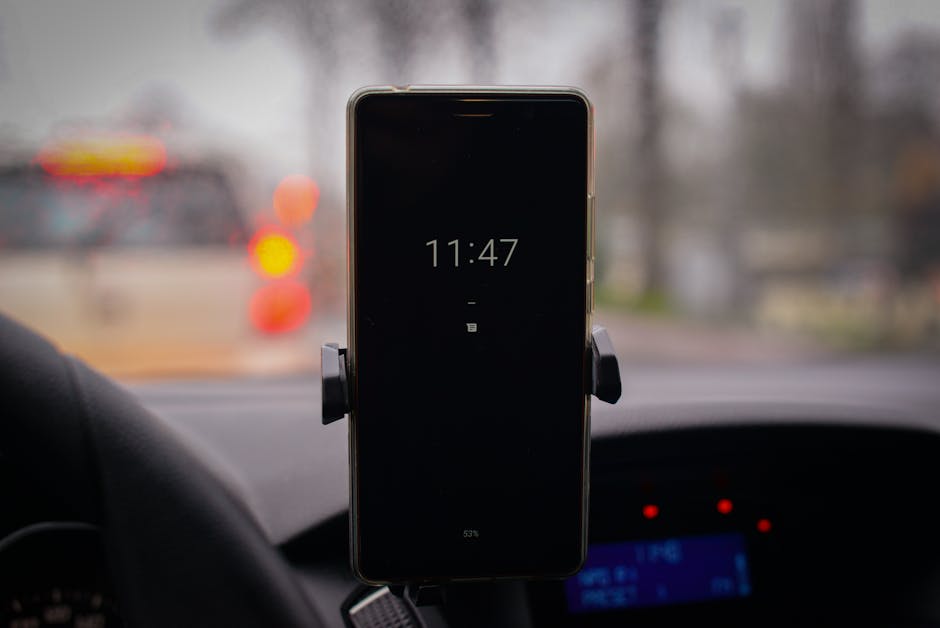So, you’re sitting there in 2025, maybe looking at your phone, probably scrolling through something, and you kinda wonder, “who actually put all this together?” Like, the apps you use every single day, the ones that let you order food or chat with friends or just, well, do whatever. Someone made those. And normally, the people making them, they’re called mobile app developers. It’s a job title that sounds pretty techy, sure, but what does it really mean, you know? It’s not just sitting there typing code all day long, although that is a big part of it, for sure. There’s a lot more to it, really.
You might think of them as wizards or something, just whipping up cool stuff with a magic wand, but it’s more like a builder. They construct digital experiences. And in a world that’s always connected, where everyone pretty much has a little computer in their pocket, these folks are pretty important. They’re kind of the backbone of how we all, you know, interact with technology on the go. It is a big field, and what they do is pretty varied, depending on the project or the company or even just the type of app they’re working on, too.
What Exactly Does a Mobile App Developer Do, Anyway?
Okay, so let’s try and make this a bit clearer. A mobile app developer, at its basic level, is someone who designs and builds applications for mobile devices. That mostly means smartphones and tablets, obviously. They don’t just dream up an idea; they actually make it happen, making it real on your screen. This involves a whole bunch of steps, and sometimes what happens is, they might specialize in just one part of it or they do a little bit of everything.
Typically, their work starts with understanding what an app needs to do. This might involve talking to clients or product managers, figuring out the main purpose. Then they plan how it’s all going to work, sketching out features and how users will move through the app. It’s like an architect drawing up blueprints before anyone even starts laying bricks. They got to know the plan.
After the planning, they get into the actual building part. This often means writing a lot of code using specific programming languages. For iPhones, generally Swift or Objective-C are used. For Android devices, it’s usually Java or Kotlin. Some developers even use special tools that let them build an app that runs on both iPhone and Android at the same time. This cross-platform stuff is pretty popular these days, it makes things easier.
They also, you know, make sure the app looks good and is easy to use. This means working on the user interface (UI) and user experience (UX). They want the buttons to be in the right place and the text to be readable and everything just to feel right. If an app is hard to navigate, people probably won’t stick around, and that’s not good. So they fix those kinds of things.
A big part of what they do, it also involves making sure the app actually works. This means testing it out for bugs and glitches and things that crash it. They spend a lot of time running different tests, trying to break it so they can fix it before anyone else gets to see it. It’s a never-ending cycle of building, testing, fixing, building again. It really is.
And then once the app is out there, their job isn’t quite over. They often keep working on it, adding new features, making updates to keep it working well, or fixing new problems that pop up. The world of tech moves so fast, so apps need constant care to stay current. It’s kinda like owning a car, you gotta keep up with the maintenance, you know.
The Skill Set: More Than Just Coding, You Know?
So, if you think mobile app developers just sit around typing lines of code, well, you’re missing a bit of the picture. Sure, coding is a really big part of their daily life, perhaps the biggest part. But there are a bunch of other abilities that someone in this line of work generally needs to have if they want to do a good job. It’s a whole package of things that help them out.
First off, problem-solving ability, it’s a huge one. Apps, they often have tricky problems that pop up, things that don’t quite work right or connect properly. A developer needs to be able to look at a mess and figure out how to untangle it, to find a way to make everything function as it should. It’s like being a detective, sometimes. They gotta find the clue.
Then there’s the whole design sensibility thing. While they might not be graphic designers themselves, they usually need to have a good eye for what looks nice and what makes an app easy for people to use. If an app is ugly or confusing, nobody’s going to stick with it for long. They need to understand what good user flow feels like. It’s pretty important.
Communication skills are, believe it or not, a really big deal. Developers often work with a team of other developers, designers, project managers, and sometimes even directly with clients. Being able to explain complicated technical stuff in simple words, and also listen carefully to what others are saying, it really makes a difference. Misunderstandings can mess things up quite a lot.
Learning new stuff, it’s a constant part of the job. The technologies and tools they use, they change all the time. What was the coolest thing to use last year might be old news next year. So, being able to pick up new programming languages or frameworks or design ideas quickly, that’s just part of being a good developer in this field. Never stops, really.
Attention to small stuff is also pretty big. A single misplaced comma or a tiny mistake in the code can break an entire app. So, being really careful and noticing little details, it’s a skill that comes in handy every single day. Debugging, for example, is basically just finding those small errors. It can be a real pain, so you need to be very patient.
And let’s not forget patience. Seriously, sometimes things just don’t work, and you spend hours trying to figure out why. Or maybe a feature takes way longer than you thought. Having the patience to keep at it, to keep trying different solutions, that’s a real defining quality for someone who builds apps. It really takes a lot of grit to get things right.
Day-to-Day Life of Someone Building Apps
Alright, so what does a day actually look like for one of these mobile app developers? It’s not all glamour and high-fives, let me tell you. It usually involves a mix of different activities, depending on whether they work for a big company or a small startup or maybe even on their own. But there are some common patterns you usually see across the board for them.
The morning often starts with some kind of team meeting, a “stand-up” they call it, where everyone talks about what they did yesterday and what they plan to do today. It’s a quick way to keep everyone on the same page. This keeps things organized, sort of. It also makes sure nobody is accidentally working on the same thing or missing something important.
After that, it’s usually head-down, coding time. They might be working on a new feature, writing the code to make a button do something specific, or perhaps connecting the app to a database on the internet to get information. This is where a lot of the actual building happens. They sometimes listen to music while they do this.
Then there’s a good chunk of time spent testing their own code. They’ll run the app on a simulator or even a real phone, making sure that what they just built actually works as intended and doesn’t break anything else. This finding of issues, it’s a constant process. You just have to find the problems before anyone else does.
Sometimes they get pulled into discussions about design, or about new features, or maybe they’re helping another team member figure out a tricky problem. It’s not always solo work. Being able to collaborate, that’s a pretty big deal. They need to share ideas, and sometimes explain why something is taking a bit longer than expected.
A developer also spends a fair bit of time just trying to figure out why something isn’t working right. This is called debugging. They go line by line through code, looking for tiny mistakes. It can be like finding a needle in a haystack, really frustrating sometimes, but super satisfying when you finally find it and fix it. That’s a good feeling.
Towards the end of the day, they might be reviewing other people’s code, or writing documentation so that others understand what they built. Or maybe they are preparing for the next day’s tasks, setting up what they’ll be tackling next. The work generally keeps going, there’s always something new to think about.
Getting Started: How You Become One of These Folks
So, you’re thinking, “Hey, this mobile app developing stuff, that sounds kind of cool.” You might wonder, how do people even get into this line of work? Well, there are a few common ways, and it’s generally not just one path that everybody takes. The world of tech is pretty flexible, really, about how you learn and get skills.
Lots of people go the traditional route. They get a computer science degree from a university or college. This gives them a strong foundation in how computers work, different programming ideas, and solving problems. It’s a solid way to start and usually covers a broad range of computer related topics too. A pretty good beginning.
But you don’t absolutely need a four-year degree these days. There are also coding bootcamps, which are shorter, more intensive programs focused specifically on teaching you the skills you need for a job like this. These bootcamps can be really quick, like a few months, and they usually get you ready pretty fast. Lots of people are doing them.
Then there’s the self-taught route. Some people just grab a bunch of online courses, tutorials, and books, and they teach themselves everything. This needs a lot of discipline and motivation, obviously, but it’s totally possible. The internet is full of learning materials. There’s so much out there, if you just look for it. It really is a great resource.
No matter how you learn, building a portfolio of your own apps is super important. This means actually making some apps, even simple ones, to show what you can do. Employers want to see actual work, not just a diploma. It shows you can apply what you’ve learned. You gotta prove it, you know?
Networking, which is basically just meeting other people in the industry, can also be a big help. Going to tech events, joining online communities, or connecting with developers can open doors to opportunities you might not find otherwise. People like to hire folks they already know or who were recommended. That makes sense, right?
Finding good places to learn and grow, that’s also really helpful. For instance, if you’re looking for support in building your digital presence, say, for businesses in Texas, a place offering Mobile app development Houston could be a spot where developers learn a lot. Being around people doing the work is good.
So, it’s a mix of formal learning, practical building, and connecting with others. The best developers are always learning anyway, because the tech changes so much. It’s not a one-and-done kind of thing. It’s a journey, a constant journey for someone who works in this field. Always more to learn out there.
The Future of App Building, Looking to 2025 and Beyond
Okay, so we’re talking 2025 now, and the world of mobile apps, it’s just going to keep on changing. It’s not stopping. Things are always moving forward, and what mobile app developers do and how they do it will also shift quite a bit. It’s a pretty interesting time to be involved in this kind of work, really. New stuff is always coming up.
Augmented reality (AR) and virtual reality (VR), they are getting bigger and bigger. You know, apps that let you try on clothes virtually or play games where digital characters appear in your real room. Developers are going to be building more and more of these experiences, figuring out how to make them feel super real. It is a very exciting area.
Artificial intelligence (AI) and machine learning (ML), these are also going to play an even larger part in apps. Imagine apps that learn what you like and suggest things more accurately, or apps that can understand your voice commands better than ever before. Developers will be figuring out how to put this smart stuff into everyday apps. It is very powerful.
Wearable devices, like smartwatches and fitness trackers, they’re not going away. In fact, they’re probably going to get even smarter and more common. Developers will need to keep building apps that work well on these small screens, making sure they’re easy to use with just a glance or a tap. It’s a different kind of screen to build for.
Security, that’s also going to be a massive deal. With more of our lives happening on our phones, keeping our personal information safe is super important. Developers will have to be even more careful about building apps that are really secure, protecting user data from bad actors out there. It’s a constant battle, really.
And what about those low-code or no-code platforms? These tools let people build apps with very little or sometimes no actual coding. While they won’t replace all developers, they will definitely change how some apps get made. Developers might focus more on making these platforms better or building the really complex stuff that these tools can’t handle.
So, the job of a mobile app developer, it’s not going anywhere. It’s just going to evolve. They’ll still be the ones figuring out how to bring new ideas to life on our phones and other devices, pushing the boundaries of what’s possible. It is a creative, challenging, and usually pretty rewarding field to be in, if you like that kind of thing.
Frequently Asked Questions about Mobile App Developers
Q1: What is a mobile app developer’s primary role in a team?
A mobile app developer’s main role normally is to create and maintain software applications specifically for mobile devices. They translate ideas into working apps, handle coding, testing, and often help with updates too. It is a pretty broad job.
Q2: What is a mobile app developer working on in 2025 that’s new?
In 2025, a mobile app developer is generally working on things like augmented reality (AR) features, integrating artificial intelligence (AI) for smarter app functions, and building apps for various wearable devices. They are constantly adapting to new tech.
Q3: What is a mobile app developer good at besides coding?
A mobile app developer who is good often has strong problem-solving skills, a knack for understanding user experience, and the ability to communicate well with their team. Patience and being a quick learner are also usually considered very big pluses.
Q4: What is a mobile app developer’s typical workday like?
Typically, a mobile app developer’s day includes team meetings, writing and testing code for new features, debugging existing problems, and collaborating with designers or other team members. It’s a varied mix, usually.
Q5: What is a mobile app developer’s career path usually?
A mobile app developer might start as a junior developer, move up to a senior role, then potentially become a lead developer or an architect. Some also go into project management or even start their own companies. There are a few ways to go.
So, there you have it. Being a mobile app developer in 2025, it’s not just some simple job where you type on a keyboard all day long. It’s a pretty complex mix of creativity, technical know-how, and constant learning. These folks, they’re the ones making sure that the digital world in your pocket keeps working smoothly and gets even cooler with time. They really are the ones making it all tick.




